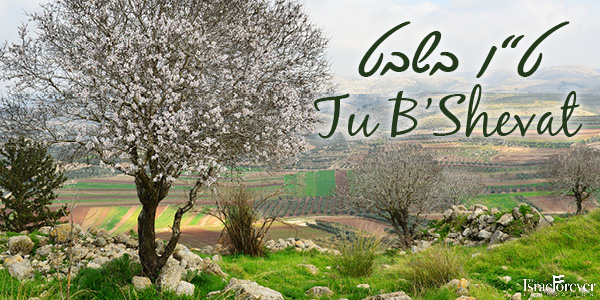The Seven Species
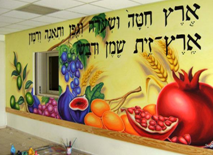
"For the Lord your God is bringing you into a good land, a land with streams and springs and fountains issuing from plain and hill; a land of wheat, barley, of vines, figs and pomegranates; a land of olive trees and (date) honey." (Deut. 8:7-8)
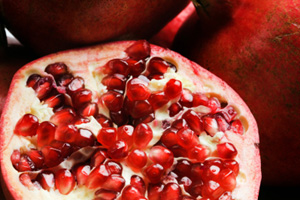
Pomegranate
רימונים - Rimonim
The pomegranate is reputed to have 613 seeds. (There is a tradition that the Torah contains 613 mitzvot - 248 positive commandments and 365 negative commandments.) In eating it, we aspire to become as full of mitzvot as the pomegranate is full of seeds.

Wheat
חיטה - Chita
Among the many images passed down through the generations and depicted in murals of thousands of years ago are those of wheat stalks. Wheat represents the endeavor to nourish our physical bodies as well as our spiritual aspirations. It must be planted, plowed, ground, cared for, harvested, winnowed, ground, sifted, kneaded and baked: a long and difficult process. Similarly, when we are far away from the land, our connection to Israel needs to be nurtured throughout our lives.

Barley
שעורה - Shiurah

Figs
תאנה - Te'ena
Symbolic of “Netzach,” endurance and longevity, the fig is believed by some to be the tree of “national Israel”, reflects the everlasting fruitfulness of the Jewish people and our capacity to endure and survive in spite of every hardship.
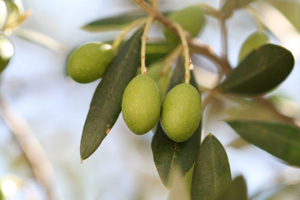
Olives
זית - Zayit
Olives are of great importance in Israel‘s history. More than any other fruit, the olive symbolizes this continuity. The gnarled barks of the ancient olive trees on Israel’s terraced hillsides seem to exude a wisdom accumulated from witnessing centuries of human history. Due to its usefulness and sturdiness the olive tree is often used as an analogy for the Jewish people. Thus Jehoshua Ben Levi compares the Jewish people to an olive tree; why is Israel compared to an olive tree? Because just as the leaves of an olive tree do not fall off either in summer or winter. So, too, the Jewish people shall be cast off, neither in this world nor in the World to Come.

Dates
תָמָר - Tamar
We eat dates to celebrate the sweetness of this reunification, borne of trees that now grow in the ancient sands of our homeland. A fruit that is mentioned in the stories of Moses, David, and Tamar, whose branches provided food, shelter and sustenance for our people for so many years, and was the recognized symbol of the Kingdom of Judea.
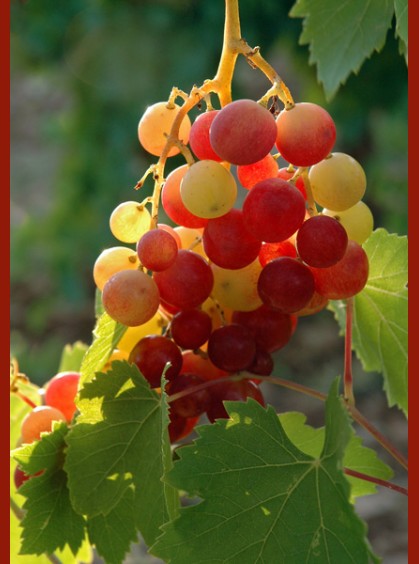
Grapes
ענבים - Anavim
The grape is one of the oldest cultivated fruit-trees. In the Torah we read that Noah planted a vineyard after the Flood. The original home of the grapevine is believed to be in the Old World, in the countries around the Mediterranean Sea. The Torah tells us that when Moshe Rabbenu sent the twelve scouts to spy out the Promised Land, they brought back with them samples of the fruit grown there. The weight of a bunch of grapes, which they had brought, is described as requiring two men at each side of a pole to carry it. Today, Israeli wines are a celebration of our beautiful vineyards scattered in various regions throughout the country.





